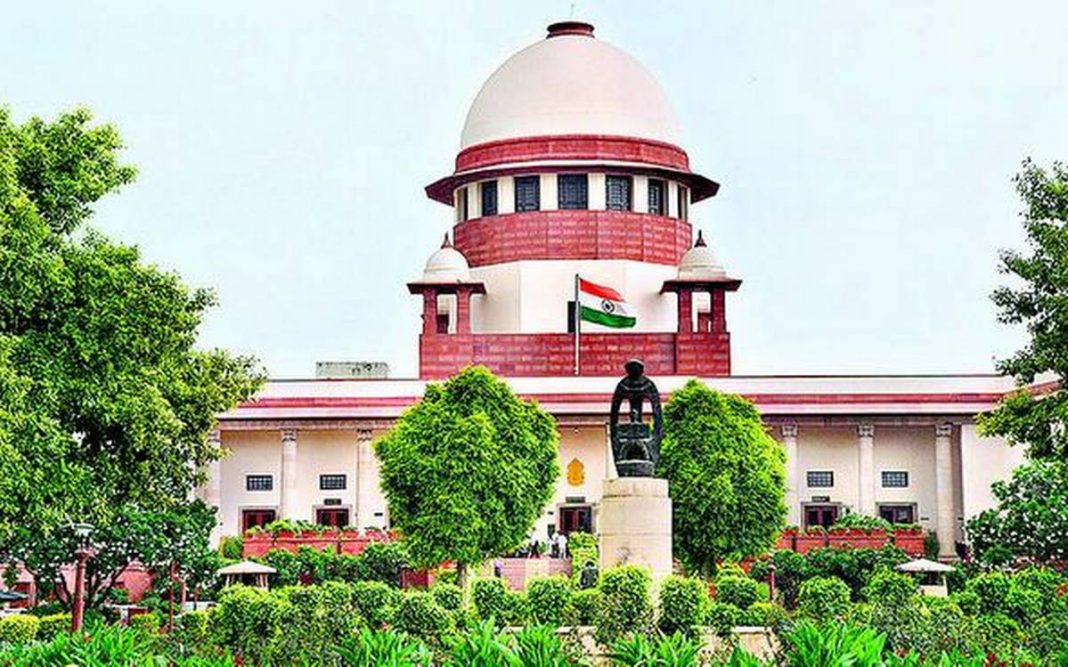Latest News
Judgement Analysis: Mukesh Kumar & Anr. Versus The State of Uttarakhand & Ors. 2020 SCC OnLine SC 148

Bench: Justice L. Nageswara Rao and Justice Hemant Gupta
Background: In 2001, when the partition of Uttar Pradesh and Uttarakhand took place, a notification was passed allowing the application of the Uttar Pradesh Public Services (Scheduled Caste, Scheduled Tribe and Other Backward Caste Reservation) Act, 1994 which provided for reservation in public services and posts in favor of persons belonging to Scheduled Castes, Scheduled Tribes and Other Backward Classes of citizens. Section 3(1) of the said Act stipulated reservation at the stage of direct recruitment and Section 3(7) provided reservation for appointment to public posts filled up by promotion and shall continue till they are modified or revoked. The State government of Uttarakhand in 2012 decided to remove the reservations for Scheduled caste and Scheduled Tribes in promotions through a notification which was immediately contested in the High court. The high court in its ruling in Vinod Prakash Nautiyal & Others v. State of Uttarakhand & Others W.P. (S/B) No.45 of 2011 held Section 3(7) to be unconstitutional and ordered for the collection of quantifiable data for the of the backwardness and the inadequacy of their representation in public posts. The notification was stuck down it being violative of the judgment of the Supreme Court in Indra Sawhney v. Union of India & Ors. (1992) Supp.3 SCC 217 and Jarnail Singh & Ors. v. Lachhmi Narain Gupta & Ors. (2018) 10 SCC 396 however in the appeal sought to disregard to its previous order and ordered for collection of Quantifiable Data regarding the inadequacy of representation of the Scheduled Castes and Scheduled Tribes in state services before providing reservation in promotion and disregarded the need to collect data on backwardness and regarded the Article 16(4-A) s an enabling provision and held that state is not bound to provide reservation and the same directions were contested in the Supreme Court in the current appeal.
Arguments forwarded by the petitioners: The petitioners claimed for the reservation as the fundamental right under Article 16(4) and 16(4-A) of the Constitution of India and pitched in favor of it by arguing for the upliftment of the members of the scheduled caste and scheduled tribes. They contested that the right to equality guaranteed to every citizen is defeated if the reservation is not given. The counsel further contended that the state cannot refuse to give reservation until the state discharges its duty to collect quantifiable data regarding the adequacy or inadequacy of representation in the public posts and the process was not followed by the state therefore violative of Article 16 of the Constitution. It was submitted that as per the data collected by the committee after the judgment of the court in M. Nagaraj & Ors. v. Union of India & Ors (2006) 8 SCC 212, there was inadequacy in the representations of the Scheduled Caste and Scheduled Tribes in the government services, and the government is bound by the judgment and the report, it has to provide the reservation.
Arguments forwarded by the Respondents: The respondents’ counsel contended that there is no inherent compulsion on the part of the state to provide reservation as the Articles 16(4) and 16(4-A) of the Constitution are merely enabling provisions and the decision of not providing reservation was taken after due consideration. They contested on the basis of the M. Nagaraj case that there was no need to provide the reservation if the state has decided not to provide so and if the state wants to give reservation then the quantum of the same could be decided by constituting a committee and on the basis of that report the state can decide upon the same and in addition submitted that the court has no power to direct the state to provide reservation.
Judgment: The court pointed out the central point of argument and limited itself to the issue of whether the State Government is bound to make reservations in public posts and whether the decision by the State Government not to provide reservations can be only on the basis of quantifiable data. The court cleared its stance over the issue of Article 16 (4) and 16 (4-A) over the fundamental right to reservation over promotion and denied the same by relying upon the judgment in Ajit Singh (II) v. the State of Punjab, (1999) 7 SCC 209 and added that the abovementioned provisions are the enabling provisions and discretionary on the part of the state. The court added by referring to the M. Nagaraj judgment that the discretion is in the hands of the state to provide reservation in public posts and couldn’t be directed by the court to provide reservation in this aspect however the decision of providing the reservation in public posts and promotions can be challenged over the quantum of seats reserved and has to be justified on basis of the quantifiable data of representation of Scheduled Castes and Scheduled Tribes.
The court also held the last judgment of the High Court as flawed where it strikes down the 2012 notification on basis of Indra Sawhney and Jarnail Singh Judgements as the notification was for the promotions only and based on the recommendations of the committee which held the representation of Scheduled Castes and Scheduled Tribes. The bench went on to declare that the judgments in Indra Sawhney, Ajit Singh (II), M. Nagaraj, and Jarnail Singh cases only regarded the need of showing quantifiable data to justify the quantum of reservation provided by the state and not in a case where the state denies the reservation as the reservation is not a fundamental right when it comes to promotions.
Document:



































































































